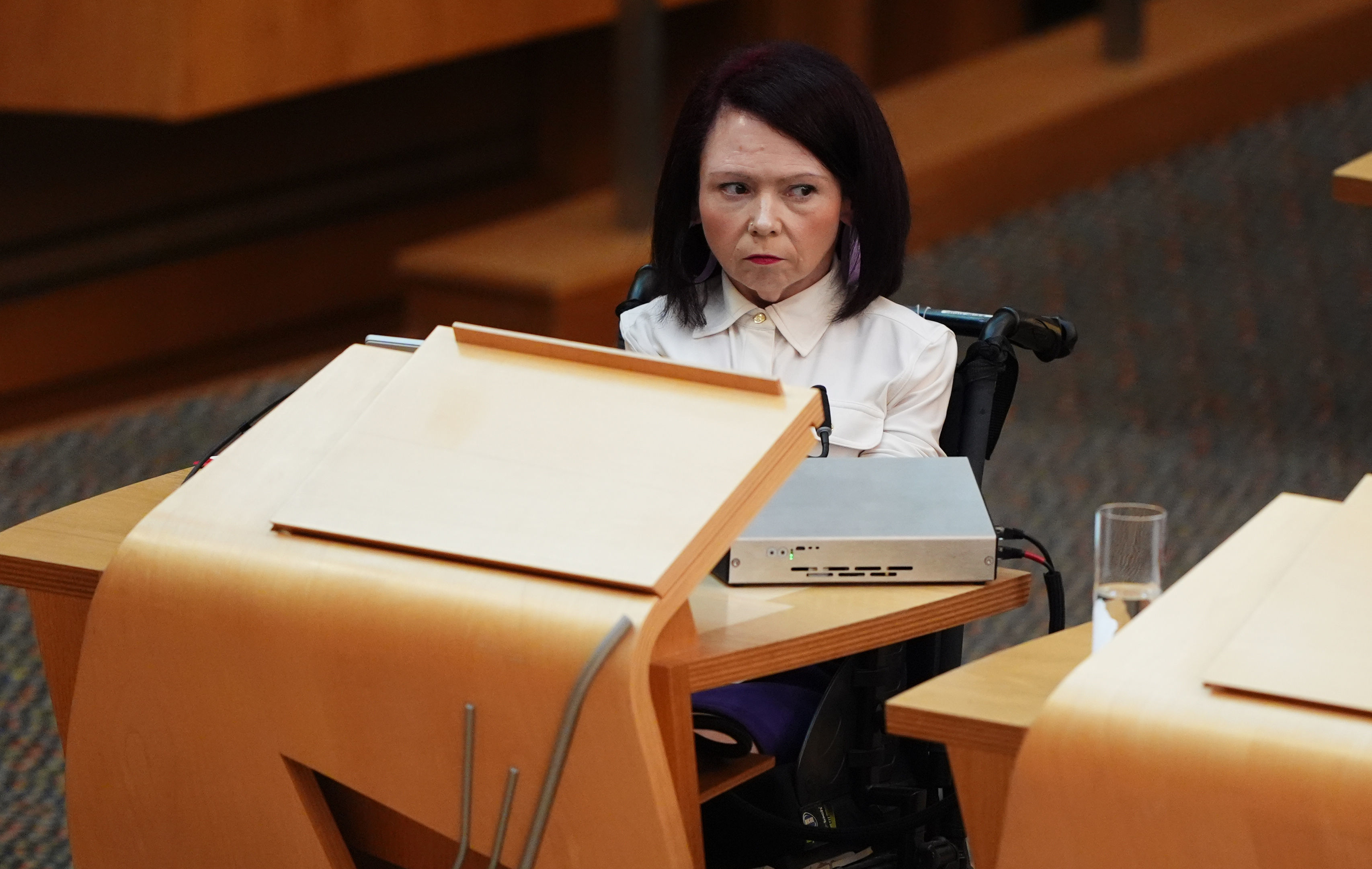TV star Liz Carr to speak out against assisted dying ahead of Holyrood vote
The Silent Witness actor will be part of a rally against assisted dying, with the protest taking place ahead of Tuesday’s vote at Holyrood.

Actor Liz Carr is to travel to Holyrood to urge MSPs to vote against “dangerous” plans to legalise assisted dying.
Carr, who is best known for her role in the BBC crime drama Silent Witness, is also a disability rights campaigner and a member of the Not Dead Yet group, which is opposed to assisted dying.
She will speak at a rally outside the Scottish Parliament on Tuesday, as MSPs prepare to vote on a Bill brought forward by Liberal Democrat MSP Liam McArthur which would allow terminally ill Scots to seek help to end their life.
Mr McArthur argues his Assisted Dying for Terminally Ill Adults (Scotland) Bill provides a “compassionate choice” for those who could otherwise be faced with a painful death.
But Carr said: “Liam McArthur’s Bill is dangerous for older, ill and disabled people across Scotland — even more so than the Kim Leadbeater’s Bill being considered in Westminster.”

Carr added: “To qualify for assisted suicide under the Bill a person must have an ‘advanced and progressive disease, illness or condition from which they are unable to recover and that can reasonably be expected to cause their premature death’.
“As someone who as a teenager was told by doctors that I wouldn’t live to be old because of my condition, this definition applies to me.”
She continued: “The McArthur Bill is not just about terminal illness, it’s about disabled people.
“It is not a limited or modest Bill, and disabled people across Scotland are right to be deeply concerned.”
Her comments came ahead of a rally by disabled people who are fearful of the impact the legislation could have on them, if it is passed.

Labour MSP Pam Duncan-Glancy said: “Disabled people, their organisations and their allies will come together to demonstrate to MSPs that they are not simply voting on the principle of a Bill, they are voting on whether it should be easier to get help to die than help to live.”
Ms Duncan-Glancy, who was the first permanent wheelchair user to be elected to Holyrood when she became an MSP in 2021, added: “This is quite simply a matter of life and death.
“MSPs must think very carefully about the real-life consequences of their decision on this, and disabled people will be there to encourage them to vote against the Bill.”
Meanwhile, Marianne Scobie, depute chief executive of the Glasgow Disability Alliance, said they were “urging MSPs to hear our voices and vote against the Assisted Dying for Terminally Ill Adults (Scotland) Bill”.
Ms Scobie said: “The Bill’s definition of terminal illness is dangerously broad and would catch many disabled people in a societal context where we are at our most vulnerable.
“Disabled people already face multiple barriers and discrimination on a daily basis and our lives are endangered by the lack of equitable access to healthcare, pain management support and cancer screening programmes.
“A key concern for many disabled people is the very real potential for Liam McArthur’s legislation to be widened and safeguards to be weakened or removed over time, as has happened in many other jurisdictions where assisted dying is legal.”
Dr Miro Griffiths, a spokesman for the Better Way campaign group, which opposes assisted dying, said: “As a disabled person and academic who focuses on the inequalities my community face, I am fearful about the implications of an assisted suicide law.
“Legislating for this practice would send a regressive message that disabled people’s lives are not worth living.
“Disabled people and others would inevitably choose to end their lives because they don’t have access to support. This outcome is unconscionable.”





